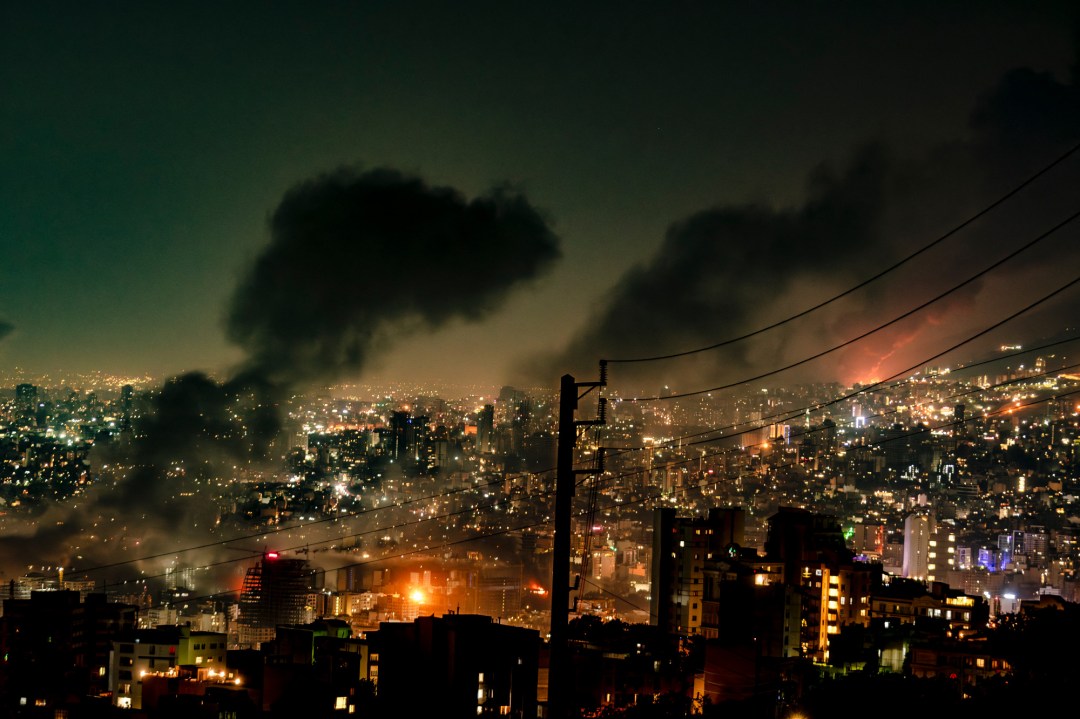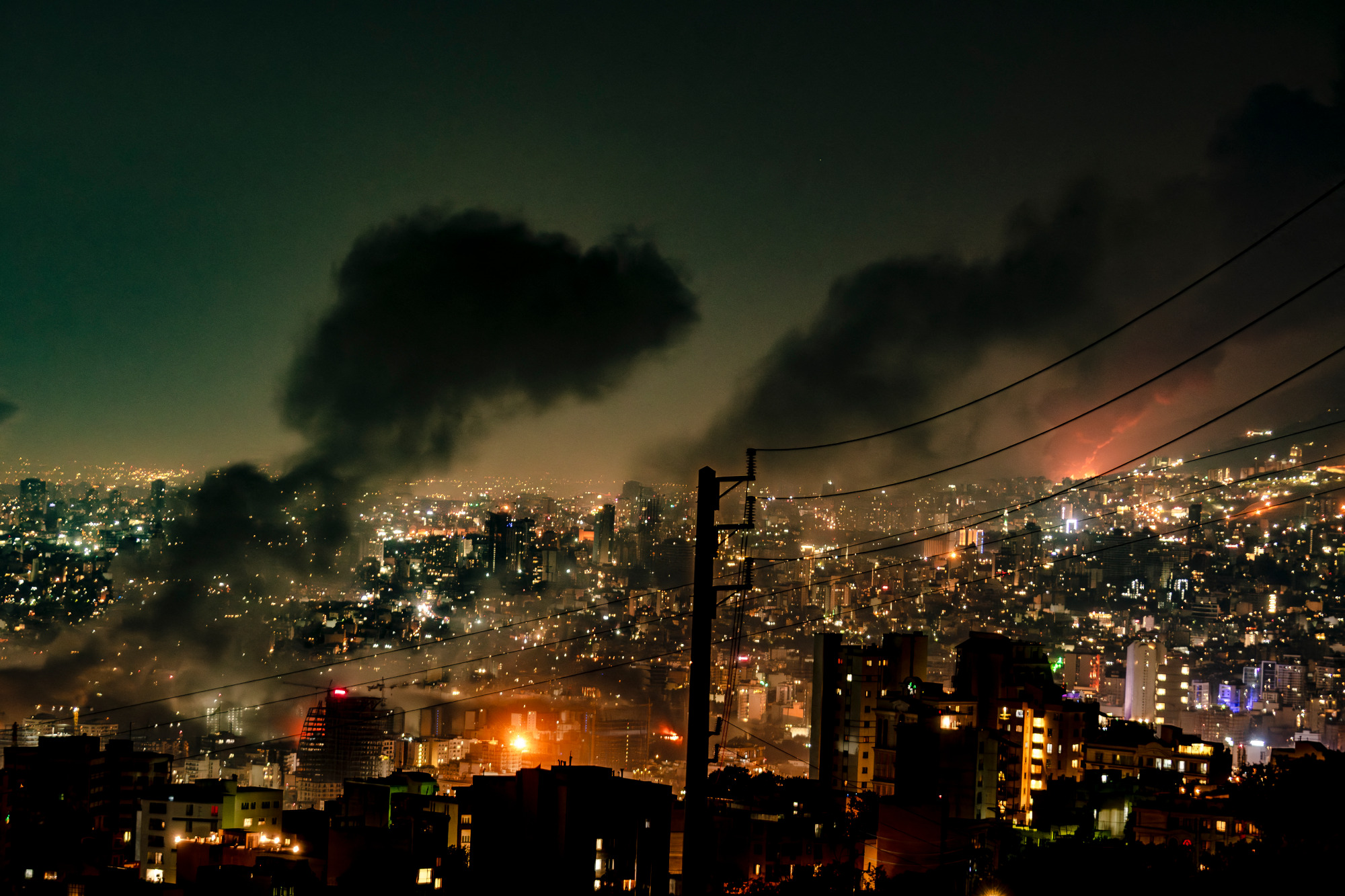This morning’s sirens shattered the early calm across much of Israel. Quiet anticipation had already been building, as signs pointed to a long anticipated American entry into the conflict, but no one yet knows when, or if, it will truly come. It had been a relatively quiet night; after a brief stint in the bomb shelter around midnight, I had managed to sleep uninterrupted until around 7 a.m. when the Home Front Command app sent the ‘pre-alert’ warning. A sign of how quickly you adapt, I first warmed up the Gaggia and made myself an espresso, before entering the shelter in our building as the sirens began to wail through the streets. ‘You’ve become Israel,’ chuckled one of my bunker mates, also in his pyjamas.
Israel is not waiting passively for American intervention. It is prosecuting the war with remarkable speed and precision
The IDF confirmed ballistic missiles were launched by the regime in Iran aimed directly at civilian areas. Among them, one struck the Soroka medical centre in Beersheba. These direct hits are becoming more frequent. So far, over 1,500 residents have been made homeless in Bat Yam near Tel Aviv alone. Twenty buildings are slated for demolition. Now an Israeli hospital, a cornerstone of civilian life, has been evacuated due to the leak of hazardous materials, when there was no valid reason for it to be targeted.
One cannot help but recall the torrent of outrage from the BBC and other British news outlets when Israel struck terror targets beneath or within hospitals in the Gaza Strip. Will we now see the same moral fervour after a ballistic missile launched from Iran struck an Israeli hospital, with extensive damage reported? Will that coverage arrive with equal immediacy and outrage? Lest we forget, the BBC’s Jeremy Bowen famously claimed Israel had ‘flattened’ the Al Ahli hospital in Gaza, when in fact its car park had been struck by an Islamic Jihad rocket. Israel was not even involved.
Unlike in Gaza, this Islamic Republic regime strike on Soroka is not collateral damage. When Israel has to strike near or at hospitals ruthlessly abused by terrorists as hiding places or shields, it does everything it can to evacuate them, with warnings – it even sends in medics and Arabic speakers on the ground. Not so when the Islamic Republic aims its weapons directly at Israel’s hospitals and homes.
Across the Atlantic, all eyes remain fixed on President Donald Trump. Reports from Axios reveal the President has asked his generals about using 30,000-pound bunker-buster bombs, known as Massive Ordnance Penetrators, to destroy Iran’s heavily fortified Fordo nuclear facility. Fordo is buried deep underground, seemingly impervious to conventional Israeli airpower; only the United States owns the weapons and aircraft capable of breaching it.
Pentagon officials say the MOPs ‘could work’, but whether Trump is actually convinced remains uncertain. Over the weekend, the Wall Street Journal noted that Trump has approved a plan to strike the ruling regime in Iran, but has withheld final orders, waiting to see if they will voluntarily give up their nuclear ambitions. When he does act, Trump wants a war that is swift, precise, and contained – one that doesn’t spiral into a broader regional abyss.
In the meantime, Israel is not waiting passively for American intervention. It is prosecuting the war with remarkable speed and precision. Overnight, 50 Israeli Air Force fighter jets carried out an expansive operation across Tehran and other cities across the country, launching more than 100 munitions at dozens of targets. Among them: air defence batteries, radar installations, missile storage sites, and facilities producing raw materials and components for ballistic missiles and defence systems.
In one of the most significant strikes, the IDF targeted the inactive nuclear reactor in the Arak region, including the reactor’s containment structure – a core element in any future plutonium-based weapons production. According to Israeli officials, Iran failed to seal the reactor’s core despite commitments under the JCPOA, deliberately preserving its potential to produce weapons-grade plutonium. The strike was aimed at neutralising that capability.
Also struck was a development site in the Natanz area, which housed specialised components and equipment used in nuclear weapons development, including projects designed to accelerate the regime’s nuclear programme. Seventeen UAVs launched by the regime launched during the night were intercepted. According to Israeli military officials, the strikes were conducted with precision and aimed at severely impairing the regime’s capacity to escalate the conflict.
This morning, as Farsi-language warnings flooded the skies, the IDF issued evacuation orders for Arak and Khondab, the region containing the Arak heavy water reactor. ISNA confirmed the area had been evacuated in advance and that there was no radiation risk. Moments later, Al-Mayadeen, the pro-Iranian pan‑Arab network, reported explosions in towns around Tehran, including Fardis, Karaj, Malard, Baqershahr, and Islamshahr. Israel’s punishing, surgical campaign continues.
Moreover, Israeli officials have hinted that, if necessary, Israel could deploy troops on the ground to neutralise Iran’s most impenetrable nuclear facilities. It is a staggering prospect that reveals the incredible daring and determination of a nation that refuses to bow before existential threats.
And still, back in Israel, life proceeds in its strange wartime rhythm. The day before, returning from a funeral, I found myself caught between a fresh alert and the need for shelter. I pulled over and, like hundreds of others, ducked into the nearest state-of-the-art underground metro station in Tel Aviv – built to double as comfortable, air conditioned bomb shelters when needed. People stood along the train platforms, scrolling on their phones, murmuring updates, following the instructions of Home Front Command, chatting and joking as if all this were unremarkable. ‘Keep calm and carry on’ may just as well be an Israeli slogan these days.
The world watches on, as Israel continues to act bravely, carrying out what German Chancellor Friedrich Merz this week gratefully called the ‘dirty work’ of neutralising the threat from the Islamic regime in Iran. After nights of watching for clues, from Google’s ratings of how busy pizza shops around the Pentagon were at critical moments, to statements shared by President Trump online and in person, the moment seems finally to be near: we stand on the edge of something huge. This is potentially the most decisive confrontation of recent decades. It could alter the power balance across the Middle East, and indeed the world. If Trump pulls the trigger, deploying the MOPs and officially entering the fray, the consequences would ripple far beyond Tehran or Jerusalem.
Trump, a president who paints himself as the man who ends wars rather than begins them, will be tempted by the prospect of ending this one decisively and victoriously for the West. Netanyahu, for his part, would surely welcome such a moment as the fulfilment of his decades’ long doctrine and strategy. It would cement his legacy not just as a controversial, embattled figure who failed his country on October 7th, but as a Churchillian leader of immense bravery, steel, and vision. In recent days, praise has already begun to surface, even from critics and political opponents. If he succeeds, he will rightly be remembered less for his controversies or missteps, but for reshaping the Middle East and Israel’s position in it, and thus the balance of power between good and evil in the entire world.
Trump, for his part, encapsulated this shift with a candid endorsement of the Israeli Prime Minister: ‘I told Netanyahu to keep going. He’s a good man who does a lot. He’s being treated unfairly by his own country. He’s in the middle of a war and he’s going through this nonsense. It’s ridiculous.’
In the quiet between sirens, we feel the pressure. The shell-shocked silence in Beersheba, the displaced families in Bat Yam, the evacuated reactor towns in Iran – these are not just lines in a bulletin; they are the raw material of something monumental unfolding.
The stakes are immense. If this war reaches its strategic conclusion, it could finally dismantle the regime’s nuclear ambitions and redraw the map of power in the Middle East. Trump and Netanyahu stand on the edge of history: flawed, controversial men, but also men of courage, decision and consequence. Khamenei, for all his fire and fury, is watching his apocalyptic reign of terror dissolve. Britain’s Keir Starmer and David Lammy, thus far pygmies in a theatre of giants, have been but marginal figures. Summoned to Washington at the last minute, Lammy may yet rescue Britain’s role from irrelevance, if he and Starmer change course now and speak clearly for what is right.
This is a contest between resolve and retreat, between those who act and those who equivocate. It may yet define the age.









Comments